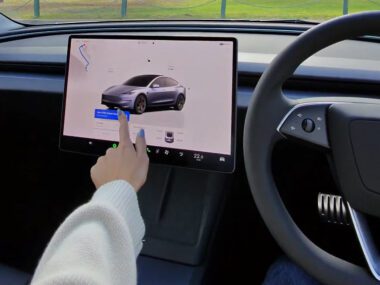Tesla Announces Imminent Launch of Supervised Full Self-Driving in Australia and New Zealand
Tesla has officially teased the upcoming launch of its Supervised Full Self-Driving (FSD) technology in Australia and New Zealand, marking a significant milestone for the region. This long-awaited update promises to bring advanced driver-assistance features to local Tesla owners, enhancing both convenience and safety. The announcement has generated considerable excitement among EV enthusiasts and industry observers alike.
Key Highlights
- Launch Regions: Australia and New Zealand
- Feature Type: Supervised Full Self-Driving (FSD)
- Status: Officially labeled as "coming soon"
- Significance: First major rollout of supervised FSD in the Southern Hemisphere
What is Supervised Full Self-Driving?
Tesla's Supervised Full Self-Driving represents the next evolution in the company's autonomous driving technology. Unlike the standard Autopilot, which primarily handles highway driving and basic tasks, supervised FSD is designed to manage more complex scenarios such as city streets, traffic lights, and roundabouts—all while requiring the driver to remain attentive and ready to take control if necessary. This system leverages a sophisticated combination of cameras, sensors, and artificial intelligence to interpret and navigate real-world environments.
Core Capabilities of Supervised FSD
The supervised FSD package includes features like automatic lane changing, navigation on autopilot, auto park, summon, and traffic light and stop sign control. It is important to note that, despite its name, the technology does not make the vehicle fully autonomous; rather, it serves as an advanced driver-assistance system (ADAS) that reduces the driver's workload while maintaining safety through constant supervision.
Regulatory and Infrastructure Readiness
One of the critical factors behind Tesla's rollout in Australia and New Zealand is the alignment of local regulations with the requirements of supervised FSD. Both countries have been progressively updating their policies to accommodate advanced driver-assistance systems, though specific approvals for features like unsupervised navigation may still be pending. Additionally, Tesla has been collecting data and refining its algorithms to suit the unique road conditions and traffic patterns in these regions.
Comparison with Existing Autopilot Features
For current Tesla owners in Australia and New Zealand, the introduction of supervised FSD will represent a substantial upgrade from the existing Autopilot suite. The following table outlines the key differences between the standard Autopilot and the new supervised FSD capabilities:
| Feature | Autopilot | Supervised FSD |
|---|---|---|
| Lane Keeping | Yes | Yes (enhanced) |
| Adaptive Cruise Control | Yes | Yes (with stop-and-go) |
| Auto Lane Change | No | Yes |
| Navigation on Autopilot | No | Yes |
| Traffic Light and Stop Sign Control | No | Yes |
| Autosteer on City Streets | No | Yes |
Market Impact and Consumer Expectations
The introduction of supervised FSD is expected to significantly boost Tesla's appeal in the Australian and New Zealand markets. Current owners will have the option to purchase the FSD package as an upgrade, while new vehicles may come with the capability included or available as an add-on. This move also positions Tesla ahead of competitors who are still in the early stages of deploying similar technologies in the region.
Preparing for the Rollout
Tesla has advised owners to ensure their vehicles are updated to the latest software version and to stay tuned for official communications regarding availability and activation. The company is likely to roll out the feature in phases, starting with a limited number of users before expanding to the broader fleet.
Conclusion
Tesla's announcement of the supervised Full Self-Driving launch in Australia and New Zealand marks a pivotal step toward broader adoption of advanced driver-assistance technologies in the region. While the system requires driver supervision, its capabilities represent a leap forward in automotive innovation, promising to redefine the driving experience for Tesla owners. As regulatory frameworks continue to evolve and technology improves, the future of autonomous driving in this part of the world looks increasingly promising.


